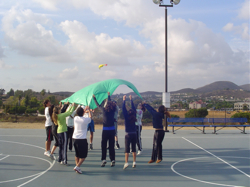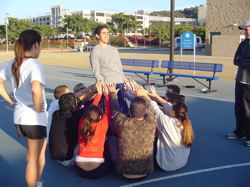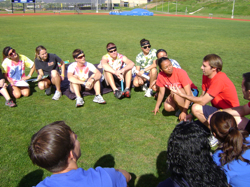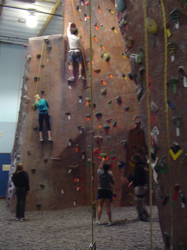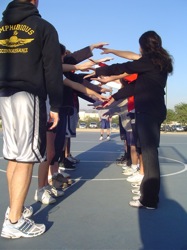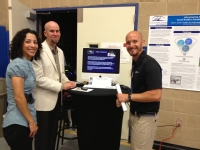 myCSUSM
myCSUSMDr. Paul Stuhr
Dr. Stuhr is a professor (full) in Kinesiology with a research frame that encompasses the area of social and emotional learning (SEL). He has over 20 years working in the field of sport pedagogy and teaches courses related to social-emotional health and physical education teacher education. His current research focus centers on K-16 student learning associated with adventure-based learning and mindfulness practices. For more on Dr. Stuhr's teaching and research please view his Research Colloquim video. Visit Dr. Stuhr's webpage for additional information on his past and current work.
Dr. Stuhr's pedagogy is inextricably tied to his research. His research, like his pedagogy, is framed by social and emotional health. The social-emotional paradigm is based on the understanding that the best learning emerges in the context of supportive relationships. Strong connectedness among the teacher & students can create community in the classroom, elicit positive emotions, and establish pathways for optimizing academic achievement and human flourishing. Specifically, mindfulness, lived-positive emotionality, and adventure-based learning are three research lines Dr. Stuhr investigates as it relates to student wellbeing in the classroom.
Mindfulness
Mindfulness invovles carefully observing thoughts, emotions and sensations — in an effort to become less stressed, more accepting, and perhaps a little happier. Contemplative practices help teach us to slow down racing thoughts, let go of negativity, and calm both our mind and body. Mindfulness does not ‘fix’ problems in life, rather it gradually helps individuals ‘feel’ a little better; to be more kind and accepting rather than completely solving all emotional suffering. Mindfulness is secular and promotes relationship skills and has been empirically shown to help students become kinder, gentler, and more reflective in the classroom. So often we spend too much or our awareness thinking about the past or the future. Mindfulness practices help train our brain to stay in the present moment. The five most common benefits from practicing mindfulness inlcude: greater capacity for patience, better focus, increased compassion, heightened body awareness, and less stress/anxiety.
Lived Positive Emotionality
Dr. Stuhr continues to explore how lived-positive emotionality affects the physical education classroom ecology, how teachers and students experience emotions, and whether teachers and students consciously notice changes in their behavior and class climate when experiencing positive emotionality. Findings indicate that physical education teachers do find their lived-positive emotional experience as functional for effective teaching, fostering caring and supportive relationships with students, and helping students to achieve desired learning objectives within class.
Adventure Based Learning
Dr. Stuhr also studies methods that promote student welbeing through the use of a curriculum model called Adventure Based Learning (ABL). ABL is the deliberate use of physical, cooperative activities that promote social and emotional health in group settings. ABL ideology suggests that community can be created in the classroom, and through group processing, heigthened transfer of learning with regard to intra- and interpersonal relationship skills can occur.
Photos of students participating in ABL (KINE 310)
